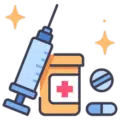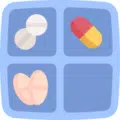Case Author
Jillian Cerullo, PharmD
Michelle Gauvin, PharmD, BCACP, BCGP, CDCES
Expert Guests
Jennifer M. Trujillo, PharmD, BCPS, CDCES, BC-ADM
Joshua J. Neumiller, PharmD, CDCES
 Jillian Cerullo PGY2 Am Care Resident Lifespan Rhode Island Hospital Providence, RI |  Michelle Gauvin Clinical Pharmacy Specialist Lifespan Rhode Island Hospital Providence, RI |  Jennifer Trujillo Professor University of Colorado Skaggs School of Pharmacy and Pharmaceutical Sci |  Joshua Neumiller Professor Washington State University School of Pharmacy |
The Case!
Setting
Patient-centered medical home providing primary care services; teaching clinic
Patient Demographics
TS is a 55-year-old female* of Northern European descent
✦Unless otherwise noted, the patient’s sex assigned at birth and current gender identity are congruent.
Reason for Visit
Referred by primary care provider to pharmacy diabetes services for diabetes not responding to oral therapy.
History of Present Illness and Presenting Symptoms
TS was diagnosed with T2DM in February of 2022 after experiencing an unintentional weight loss of 20 lbs in 2021. At the time of diagnosis, the patient’s A1C was 8.0%. Patient was counseled on diet and lifestyle changes and started on metformin, which was titrated over the first month to 1g twice daily with food. Patient tolerated metformin well and at her three month follow up her A1C had decreased to 7.0%. At that time, empagliflozin (Jardiance) was added to her regimen. Over the next year empagliflozin (Jardiance) was titrated to optimal dose, and glipizide was subsequently added.
At the patient’s 2-year primary care follow up visit, the patient complained of raised, itchy patches on her elbows. The patches have diminished but not gone away with regular application of betamethasone ointment. She also admits to experiencing polydipsia, polyuria, fatigue, and frustration about glucose being routinely elevated above goal. The patient checks blood glucose about 3 times per week and reports blood glucose ranging from 150-250. Patient’s A1C has increased to 9.0%.
The provider suspects the patient has not been adherent to her diet and medication, so the provider placed a consult for the pharmacist to work with this patient.
During today’s visit, the patient again confirmed optimal adherence to her medication and diet, and pharmacy records confirm the patient has been picking up her medication every month.
Past Medical History
- Type 2 Diabetes
- Asthma
- Psoriasis
- Hay fever
- CKD
Social History and Insurance
TS is employed as a software engineer. She is married with 2 kids and lives with her husband in a house they own. She has commercial insurance coverage through her employer. She does not use tobacco products.
Family history
- Mother: History of T1DM
- Father: History of Ulcerative Colitis
Current Medications
- Albuterol 90 mcg/actuation: Take 2 puffs by mouth as needed
- Betamethasone 5% ointment: Apply to affected area 1-2 times daily if needed
- Cetirizine 10 mg tablet: Take one tablet by mouth once daily as needed
- Ibuprofen 400 mg tablet: take 1 tablet by mouth every 8 hours as needed
- Metformin 500 mg ER tablet: Take 2 tablets twice daily with food
- Empagliflozin (Jardiance) 25 mg tablet: take 1 tablet once daily
- Glipizide 5 mg tablet: Take 1 tablet once daily
Physical Exam Findings / Vital Signs (TODAY)
| Weight | 73 kg |
| Height | 175 cm |
| BMI | 23.8 kg/m2 |
| Blood Pressure | 120/80 mmHg |
| Temperature | 36.9 °C |
| Pulse Rate | 68 bpm |
| Respiratory Rate | 14/min |
Pertinent Laboratory Findings
| Component | Reference Range & Units | Today |
| Glucose | 67 – 99 mg/dL | 240 |
| Creatinine | 0.44 – 1.03 mg/dL | 1.5 |
| eGFR | Abnormal <60 ml/min/1.73M | 44 |
| Urine Protein:Creatinine Ratio | < 30 mg/g | 10 |
| Component | Reference Range & Units | Today |
| Hemoglobin, A1c | 4.3 – 5.7% | 9.0 |
| Component | Reference Range & Units | Today |
| C-peptide | 0.8–3.0 ng/mL | 0.34 |
| GADA | < 0.02 nmol/L | 3.4 nmol/L |
FINAL NOTE: This program will be available for recertification credit through the American Pharmacists Association (APhA) Board Prep and Recertification Program. To learn more, visit the APhA Board Prep and Recertification website and sign up for the Evidence-Based Practice Series.
References and Resources
- Buzzetti R, Tuomi T, Mauricio D, et al. Management of Latent Autoimmune Diabetes in Adults: A Consensus Statement From an International Expert Panel. Diabetes 2020; 69 (10): 2037–2047.
- O’Neal KS, Johnson JL, Panak RL. Recognizing and Appropriately Treating Latent Autoimmune Diabetes in Adults. Diabetes Spectr 2016; 29 (4): 249–252.






 iForumRx.org is a web-based community of practice designed to inform ambulatory care pharmacy specialists, pharmacy residents, and student pharmacists about high-quality, practice-changing evidence.
iForumRx.org is a web-based community of practice designed to inform ambulatory care pharmacy specialists, pharmacy residents, and student pharmacists about high-quality, practice-changing evidence.